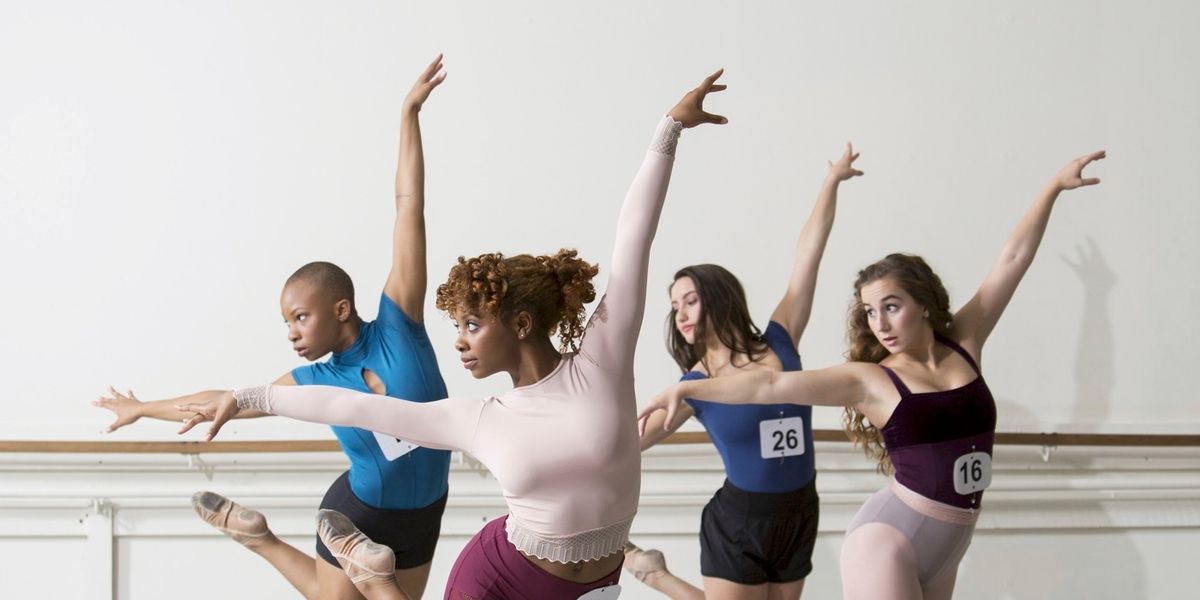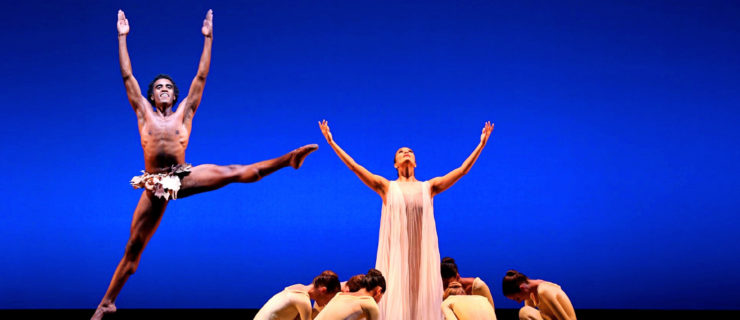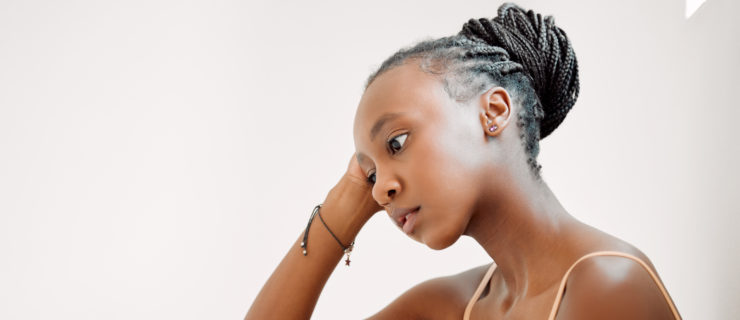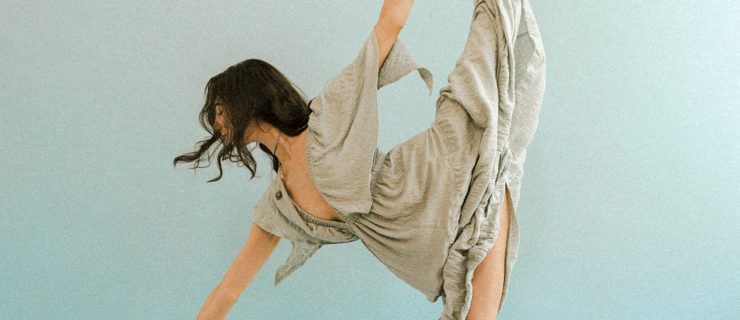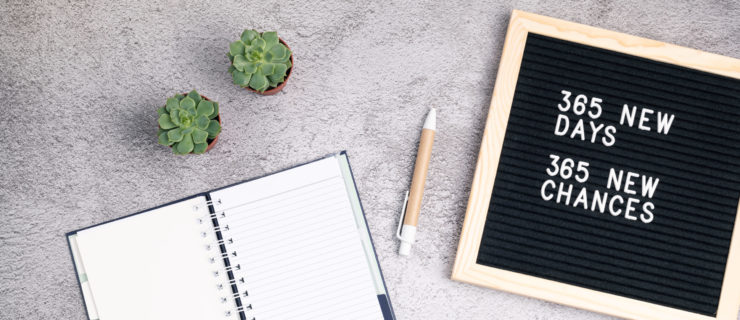How to Handle Dance Audition Nerves
Ohio University sophomore Morgan Arcoraci was at a dance audition a few years ago when disaster struck. “People kept coming up to me, asking for my name. I thought I was really killing it!” she recalls. “It turned out I’d pinned my number upside-down. When they asked me to fix it, I was so upset I started shaking.” But after taking a moment to refocus, “I realized how funny it was,” she says. “Being able to laugh about it got me through the rest of the audition.”
Dance auditions are always stressful—but you shouldn’t let audition-related anxiety keep you from performing at your best. If auditions give you the jitters, try these tips to ease your nerves.

Breanne Granlund in American Ballet Theatre’s Don Quixote (Rosalie O’Connor, courtesy ABT)
Prepare Properly
Part of what makes auditions so nerve-racking is that they’re filled with unknowns. Doing some advance research will give you a sense of what to expect. “For a school, what is their syllabus style? For a company, what work do they perform? What does the audition entail?” asks Kate Crews Linsley, academy principal at Nashville Ballet.
You’ll also have less to worry about if you feel like your body is ready for the audition. As the big day nears, fuel yourself with meals and snacks that make you feel good. (That might include treats!) Linsley also recommends honing your approach to class. “Look for the nuances in movement and musicality,” she says. “If you’re used to paying attention to specific details, it will be second nature in the actual audition.”
Psych Yourself Up—Not Out
At American Ballet Theatre corps member Breanne Granlund’s first-ever audition, “I got so nervous that I shut down,” she remembers. “I couldn’t pick up a single combination.” Determined to overcome her fears, she learned a valuable coping strategy: to trick her brain. “If I started to get worked up, I’d tell myself, ‘I know I can do this.‘ If I wanted to cry, I’d make myself laugh instead,” she says. “Over time, it got easier. Imitating confidence turned me into a more confident dancer and person.”
Why does this strategy work? According to Dr. Linda Hamilton, a clinical psychologist who specializes in performance, the way you talk to yourself really matters. “Predicting that you’re going to fail can make you so distressed you can’t focus, which can lead to more mistakes,” she explains. Positive self-talk, on the other hand, can help you feel capable of tackling the task at hand. “If you’re worrying too much, practice stopping those thoughts,” Hamilton says. “Then, replace them with something constructive. If all else fails, think about what you would say to your best friend, write that down, and use it on yourself.”

Granlund performing in La Bayadère (Rosalie O’Connor, courtesy ABT)
Bring Backup
“If I’m feeling agitated or frantic, I don’t want to be alone,” Arcoraci says. On audition days, she tries to surround herself with people she trusts to love and accept her no matter what happens. Her advice for picking your companions? “They don’t have to be crazy about dance. They do have to be crazy about you.” Their job is to pump you up and/or keep you grounded; essentially, they can tell you the things you’ve been trying to tell yourself. Plus, when you’re in an unfamiliar setting, it never hurts to see a friendly face.
Breathe!
Nervousness isn’t just a mental struggle. It can also involve physical symptoms that might affect your performance. If you’re feeling lightheaded, shaky, or short of breath, there’s a simple but effective solution: “Yoga breathing can regulate stress hormones and calm you down,” Hamilton says. Before the audition, lie on your back or curl up in child’s pose and take slow, deep breaths, counting to five with each inhale and exhale. If your stress ramps up again during the class, return to this type of breathing with your hands on the barre or on your stomach and chest. Hopefully, you’ll feel those scary physical symptoms subside.

Arcoraci in class at Ohio University (Riley Perone, courtesy Ohio University School of Dance)
Learn as You Go
If you want to pursue a dance career, auditions are unavoidable. The best way to become more comfortable is to go to as many as you can. “Even if it’s an opportunity you’re not sure you’re interested in, you can benefit from the experience,” Linsley points out. “Plus, having more options puts less pressure on each individual audition.”
Of course, no matter how prepared you are or how well you perform, an audition might not go your way. You can’t control how many slots are available, what type of dancer they’re looking for, or whether one of the decision-makers happens to be in a bad mood. As Granlund puts it, “You can’t possibly know what’s going on inside the judges’ heads, so it’s not worth getting worked up over. It’s like diagnosing an illness on the internet—you’ll always end up with worst-case scenarios.”
To calm your anxious mind, try to let go of the outcome and focus on the now. “Don’t view an audition as an all-or-nothing experience, where if you don’t get this part or position, you’re a failure,” Hamilton says. “It’s a chance to do something you love. It’s a chance to grow. You never fail by learning.”
